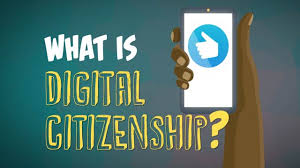Digital Citizenship

Internet Safety
In order to gather information, it is almost always a requirement for a computer user to access it through the internet. There are computer networks everywhere, including public places like the library or coffee shops, and even in homes. It is important to remember to keep your personal information private while using the internet. There are many types of hackers who would like to gain unauthorized access to your information to conduct identity theft or steal other data relative to your credentials and private information.
The Golden Rule
Your online behavior should match your offline behavior. Just as it would be inappropriate to disclose personal information to strangers or even other people that we know, it is equally as important (and in some cases even more so) that you remember not to share private information over the internet.
What is Private Personal Information?
While using the internet it is important to protect the following data points: first and last name, street address, name and location of school, email addresses, phone numbers, passwords and log-in information, information about your family, photos and videos of you and your family and friends.
Spyware
Spyware is a type of virus that downloads and installs itself on a system, allowing a hacker to view certain pieces of data on the application layer.
Email phishing and web browser pop-ups are the two most frequent ways in which internet users download these viruses by mistake. It is often associated with the promise of sending you a prize or some product or service for free in exchange for your personal information.
Anti-spyware software is available in the open source for free and can remove and in many cases prevent spyware from being attached to your computer.
Geo-tagging
Location services on smart phones and computers us GPS technology to track your location. It would be a good security measure to ensure that geo-tagging is turned off, that way no one connected to your social media and other services can identify your location.
Passwords
Passwords should never be shared with friends, should be changed frequently, and contain a variation of different types of characters including upper and lowercase letters, numbers and special characters (these are elements of strong passwords).
Email Addresses
When creating email addresses, it would be more secure to not use your name within it (unless it’s a professional email that an adult would use for employment or educational purposes), gender, age and location.
Are Text and Picture Messages Private?
No, they are not private. They can be forwarded to others without the original sender knowing about it. People can show the information to others on their phones. It is possible to go through the legal departments at the telecommunications providers and get a list of all of the text, pictures, videos and messages that were sent and received on any cell phone.
Chatting
Chatting while playing games is generally safe unless you discover a player that is trying to actively pursue personal information from the others in a chat room setting. Those types of players can be blocked and removed from games and applications once they are reported.
Stop, Block and Report
If you find yourself the subject of being cyberbullied by other users, it is best to use the stop, block and report method in order to remove the cyberbully and restrict them from having access to the parts of applications that you do.
Security Keys to Remember
Keep your information private.
It’s always safer to communicate with people you know in real life.
Stop, block and report cyberbullies.
Everything posted on the internet leaves a permanent digital fingerprint even after it is deleted.


